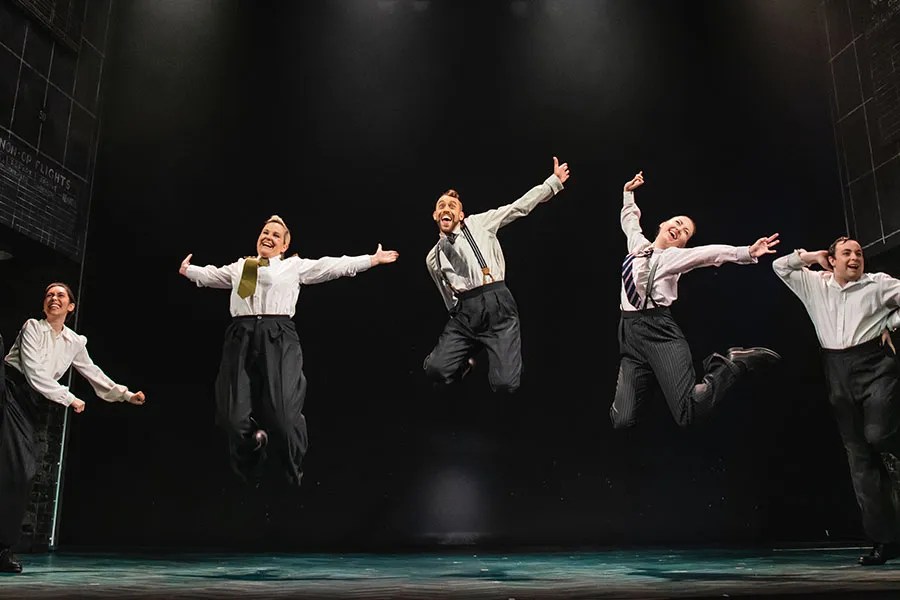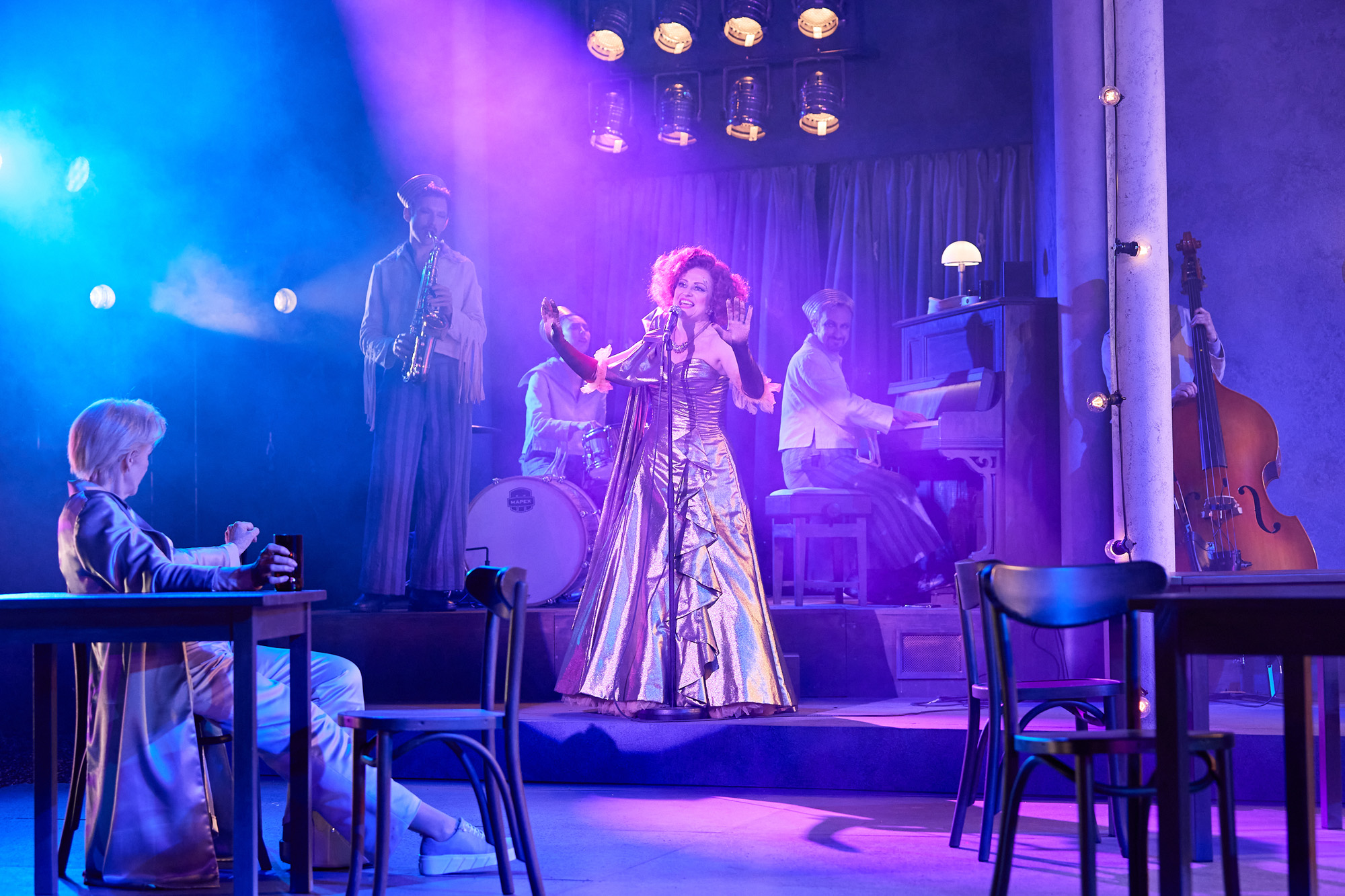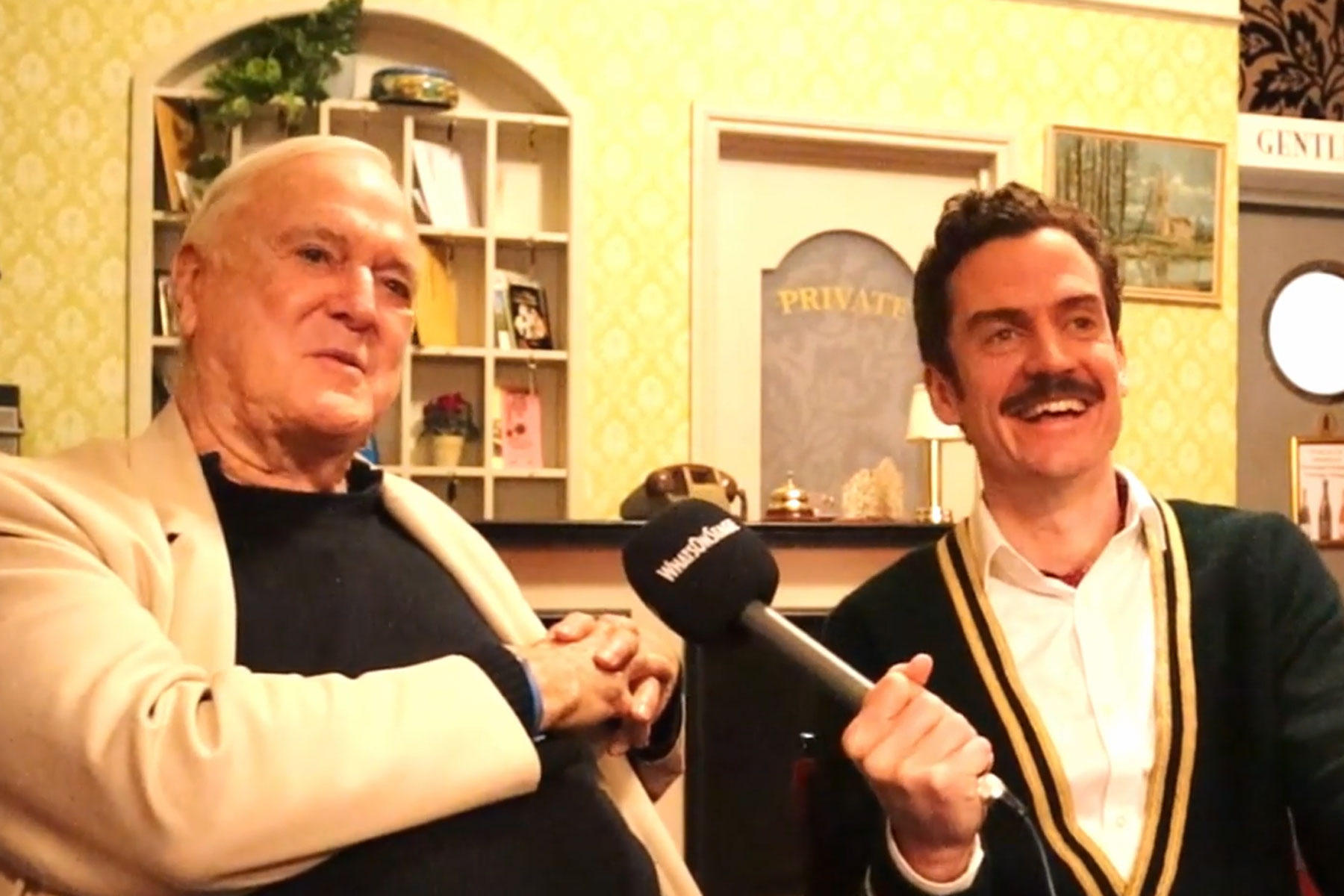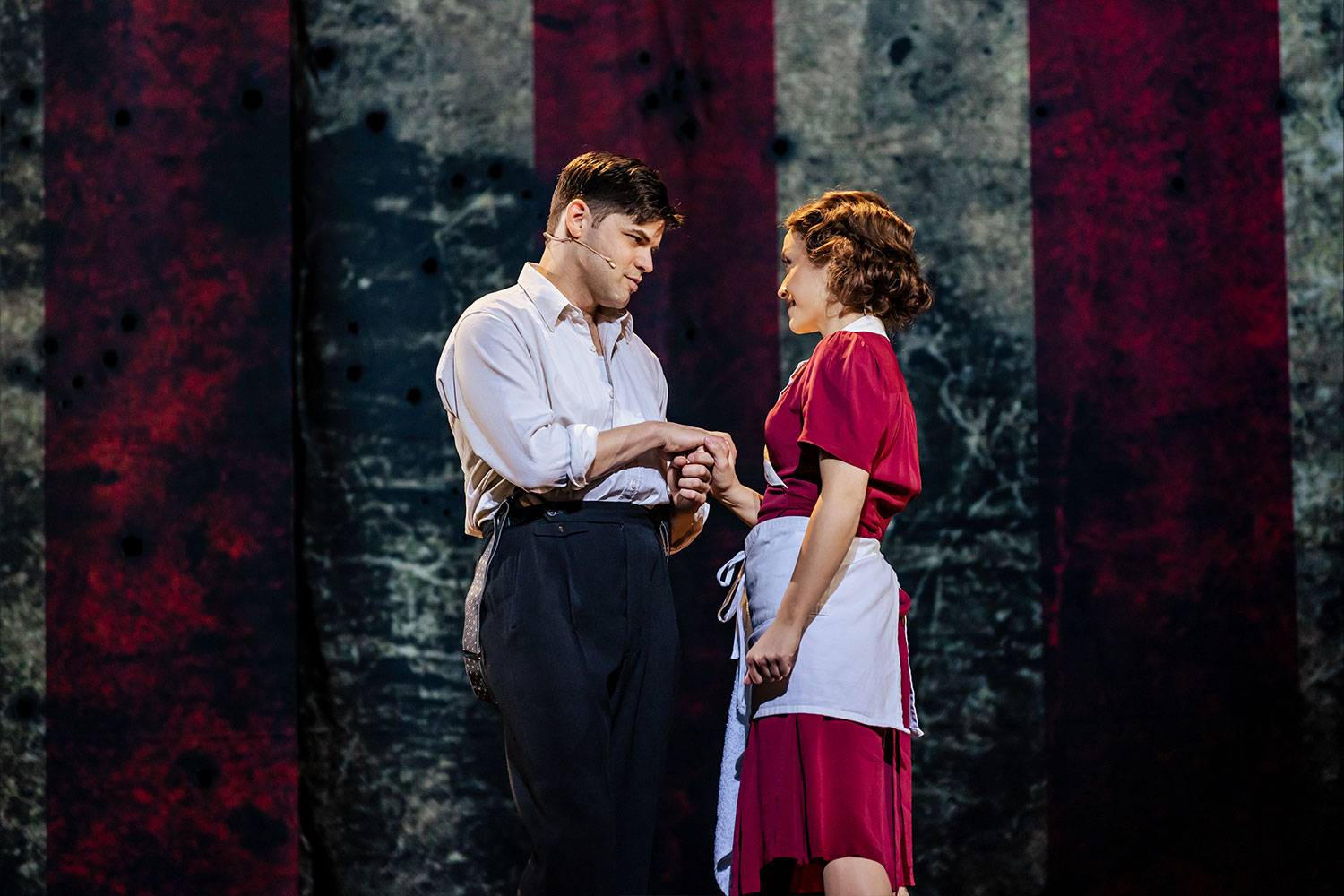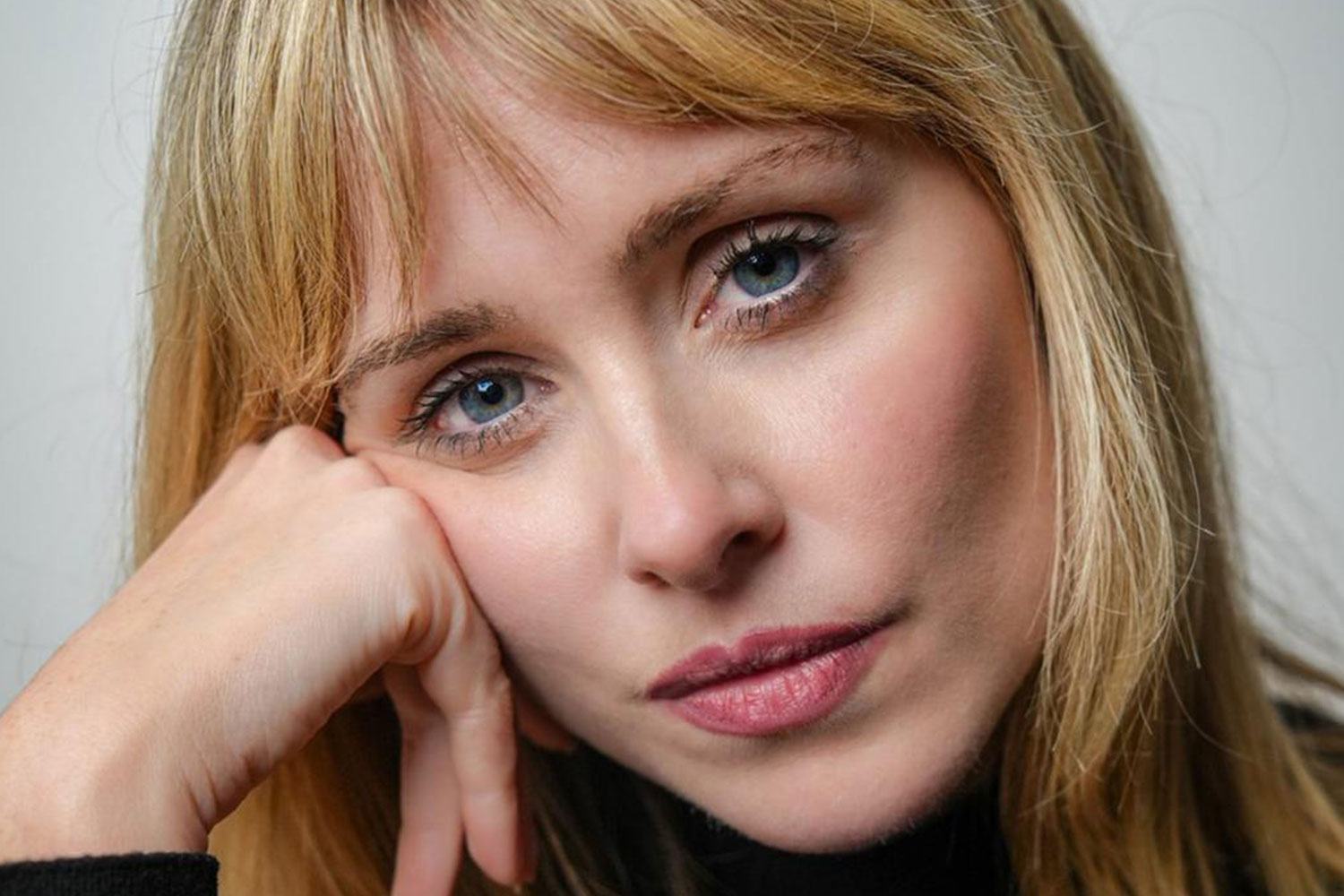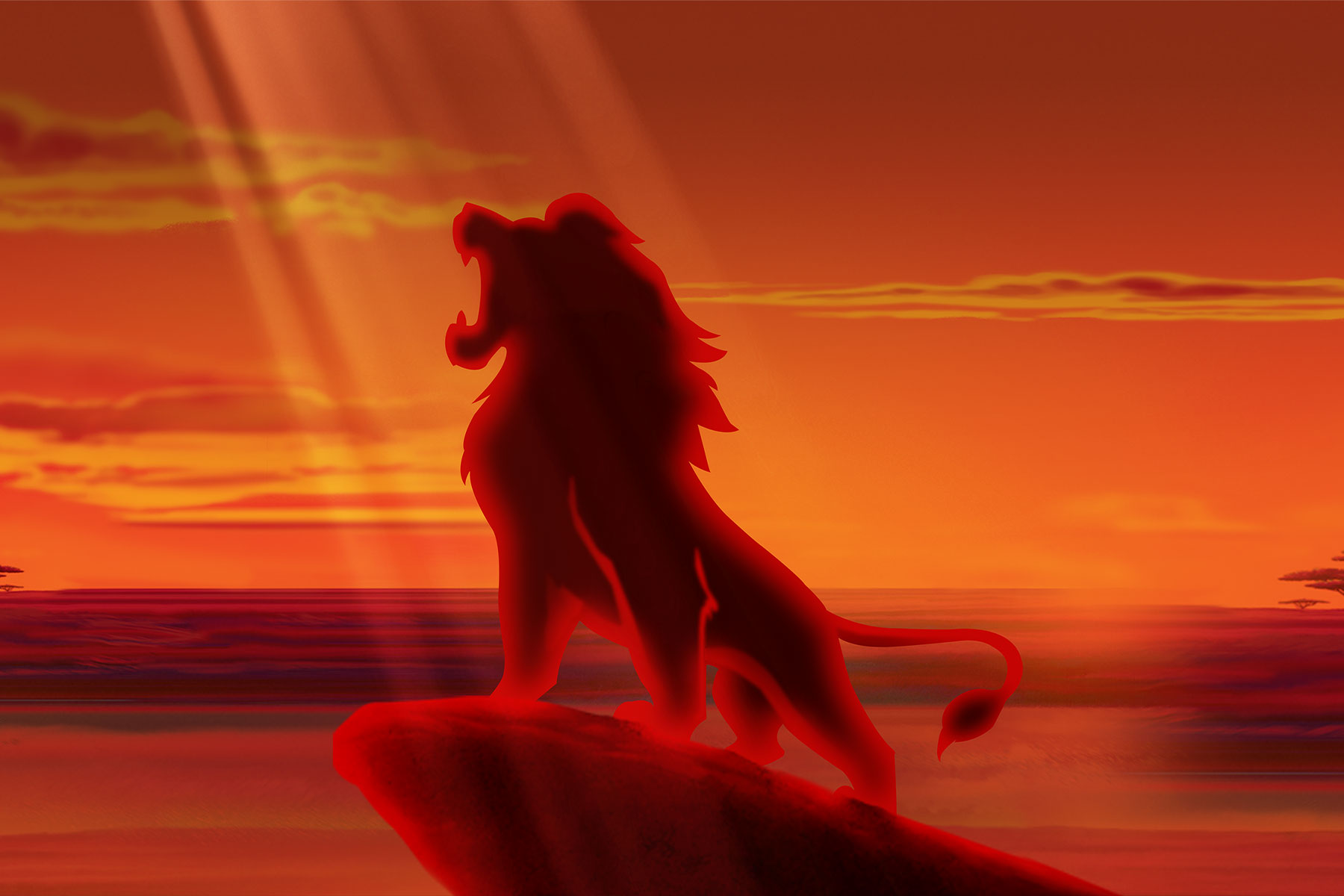”Let The Right One In” at Manchester’s Royal Exchange – review
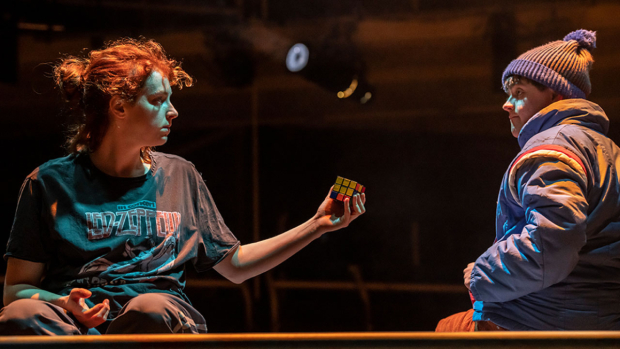
© Johan Persson
You don’t have to wait long for the first drops of blood to splatter the floor. A crimson torrent gushing out of a man’s slit throat, strung upside down like a carcass in an abattoir, is one of the first images in Bryony Shanahan’s new production of the cult 2008 film, adapted by Jack Thorne. But bloodletting takes a backseat in a story about a lonely, neglected boy Oskar who befriends a strange child, Eli, with putrid smells, arriving amidst a series of brutal murders.
Cruelty, aggression and violence infect a community in which people are shown to be capable of worse than any non-human threat. Pen-knives and rocks are brandished, while the bullying scenes are some of the show’s harshest, where children’s play areas of sandpits and swimming-pools become torture chambers. Andy Sheridan radiates the unsettling undertones of his gaunt, flaxen-haired, twitchy Hakan – the old man desperate to keep Eli in his home – with his atonal horn of a voice.
Amelia Jane Hankin designs an inhospitable landscape of alpine blues and muted autumnal hues; red stands out and alarms even more in this desaturated world. A drain sits at the centre – never full, constantly beckoning more blood. Faint red smears gradually stain floor tiles which are the pale blue colour of frostbite and the ashen grey of flesh drained of blood. Lighting designer Joshua Pharo uses LED bars in the stage to isolate characters in chambers or quadrants. It reflects the way the colour can be drained out of the world by outsiderness, refilled by the connection of friendship.
Eli’s otherness is shown by anachronisms, with old-fashioned terms like “naturally”, a collection of antiques and record-player. As central misfit Oskar, Pete MacHale is the show’s beating heart. His head is often slightly tilted forward so he looks timidly from underneath his brow and fringe. His squeaky, adenoidal voice suggests adolescence but is also full of Oskar’s jitteriness, speaking in compressed yelps and nervous splutters. As Eli, Rhian Blundell’s is strident and blunt, with dissonant intonations and the occasional snarl or growl. It’s as if their voices reflect their states: his warm-blooded, hers cold.
They capture the themes of human and animal, at one point nuzzling like wolf pups. Blundell has a tomboyish androgyny as well as being vulpine with dark eyes and a dishevelled mane of auburn curls. Two platforms above the stage on opposite sides are sometimes used to overstress these dualities, but feel more effective when reinforcing the sense of being watched near the start. As in her production of Wuthering Heights – also exploring the civilised and the savage – Shanahan uses montages of frantic running to convey ferality and the restive energy fuelled by young love, even if it feels one of many busy effects.
Despite all its atmospheric choices, it lacks the bite of enough pulse-quickening shock. It’s pitched more as a melancholy coming-of-age story, as Pete Malkin’s initial eerie music, sounding like murmuring wind, increasingly gives way to forlorn piano. The play’s offbeat humour also undercuts the tension, lacking a sharp thriller momentum so it’s never allowed to chill right to the bone. It’s a show which bears its fanged teeth, without fully sinking them in.



